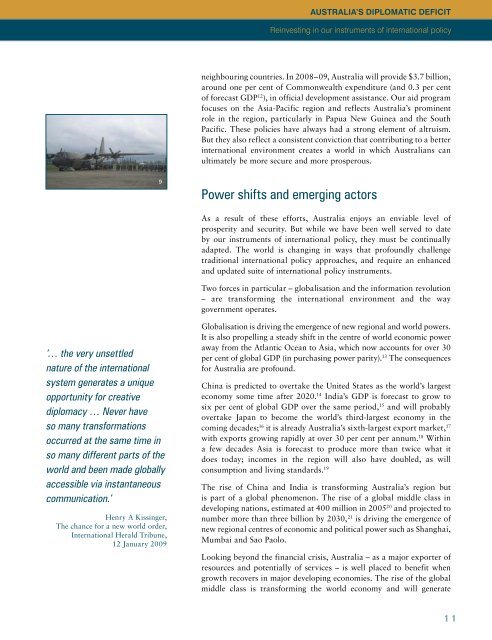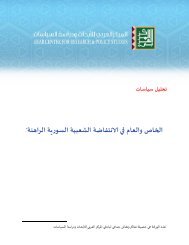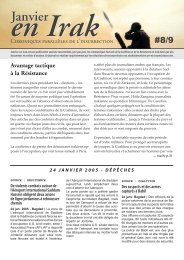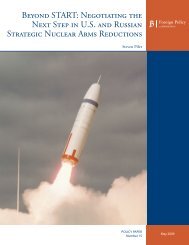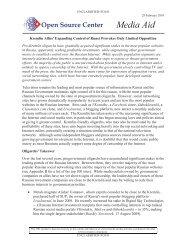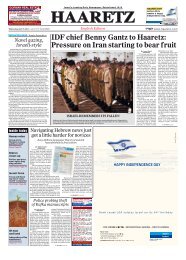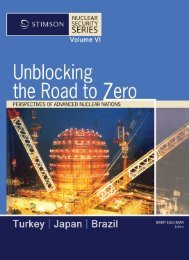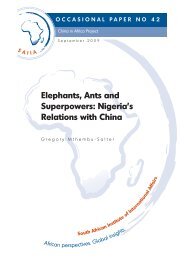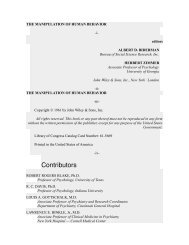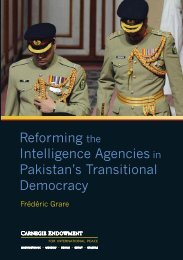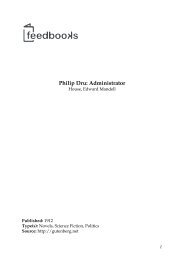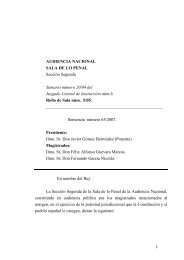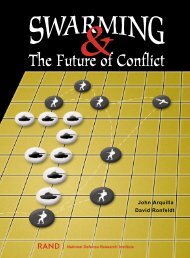Download PDF - Lowy Institute for International Policy
Download PDF - Lowy Institute for International Policy
Download PDF - Lowy Institute for International Policy
You also want an ePaper? Increase the reach of your titles
YUMPU automatically turns print PDFs into web optimized ePapers that Google loves.
AUSTRALIA’S DIPLOMATIC DEFICIT<br />
Reinvesting in our instruments of international policy<br />
neighbouring countries. In 2008–09, Australia will provide $3.7 billion,<br />
around one per cent of Commonwealth expenditure (and 0.3 per cent<br />
of <strong>for</strong>ecast GDP 12 ), in official development assistance. Our aid program<br />
focuses on the Asia-Pacific region and reflects Australia’s prominent<br />
role in the region, particularly in Papua New Guinea and the South<br />
Pacific. These policies have always had a strong element of altruism.<br />
But they also reflect a consistent conviction that contributing to a better<br />
international environment creates a world in which Australians can<br />
ultimately be more secure and more prosperous.<br />
9<br />
Power shifts and emerging actors<br />
As a result of these ef<strong>for</strong>ts, Australia enjoys an enviable level of<br />
prosperity and security. But while we have been well served to date<br />
by our instruments of international policy, they must be continually<br />
adapted. The world is changing in ways that profoundly challenge<br />
traditional international policy approaches, and require an enhanced<br />
and updated suite of international policy instruments.<br />
Two <strong>for</strong>ces in particular – globalisation and the in<strong>for</strong>mation revolution<br />
– are trans<strong>for</strong>ming the international environment and the way<br />
government operates.<br />
‘… the very unsettled<br />
nature of the international<br />
system generates a unique<br />
opportunity <strong>for</strong> creative<br />
diplomacy … Never have<br />
so many trans<strong>for</strong>mations<br />
occurred at the same time in<br />
so many different parts of the<br />
world and been made globally<br />
accessible via instantaneous<br />
communication.’<br />
Henry A Kissinger,<br />
The chance <strong>for</strong> a new world order,<br />
<strong>International</strong> Herald Tribune,<br />
12 January 2009<br />
Globalisation is driving the emergence of new regional and world powers.<br />
It is also propelling a steady shift in the centre of world economic power<br />
away from the Atlantic Ocean to Asia, which now accounts <strong>for</strong> over 30<br />
per cent of global GDP (in purchasing power parity). 13 The consequences<br />
<strong>for</strong> Australia are profound.<br />
China is predicted to overtake the United States as the world’s largest<br />
economy some time after 2020. 14 India’s GDP is <strong>for</strong>ecast to grow to<br />
six per cent of global GDP over the same period, 15 and will probably<br />
overtake Japan to become the world’s third-largest economy in the<br />
coming decades; 16 it is already Australia’s sixth-largest export market, 17<br />
with exports growing rapidly at over 30 per cent per annum. 18 Within<br />
a few decades Asia is <strong>for</strong>ecast to produce more than twice what it<br />
does today; incomes in the region will also have doubled, as will<br />
consumption and living standards. 19<br />
The rise of China and India is trans<strong>for</strong>ming Australia’s region but<br />
is part of a global phenomenon. The rise of a global middle class in<br />
developing nations, estimated at 400 million in 2005 20 and projected to<br />
number more than three billion by 2030, 21 is driving the emergence of<br />
new regional centres of economic and political power such as Shanghai,<br />
Mumbai and Sao Paolo.<br />
Looking beyond the financial crisis, Australia – as a major exporter of<br />
resources and potentially of services – is well placed to benefit when<br />
growth recovers in major developing economies. The rise of the global<br />
middle class is trans<strong>for</strong>ming the world economy and will generate<br />
11


